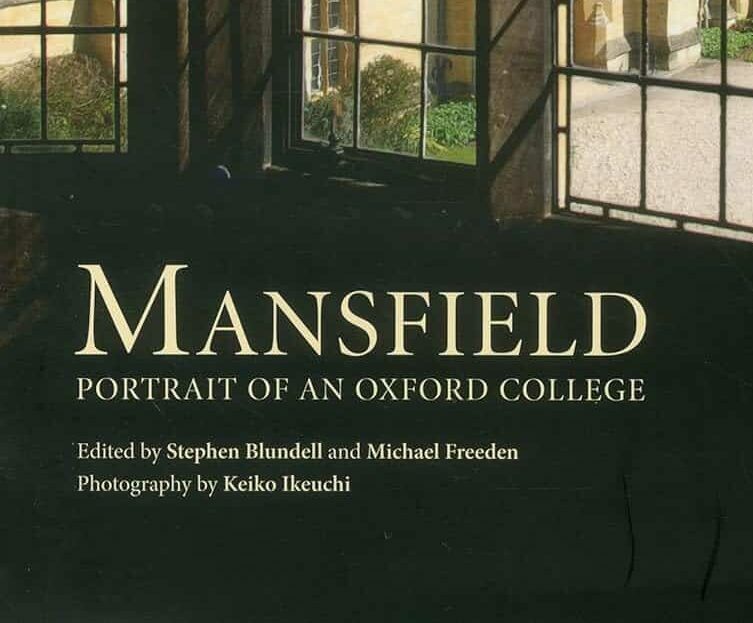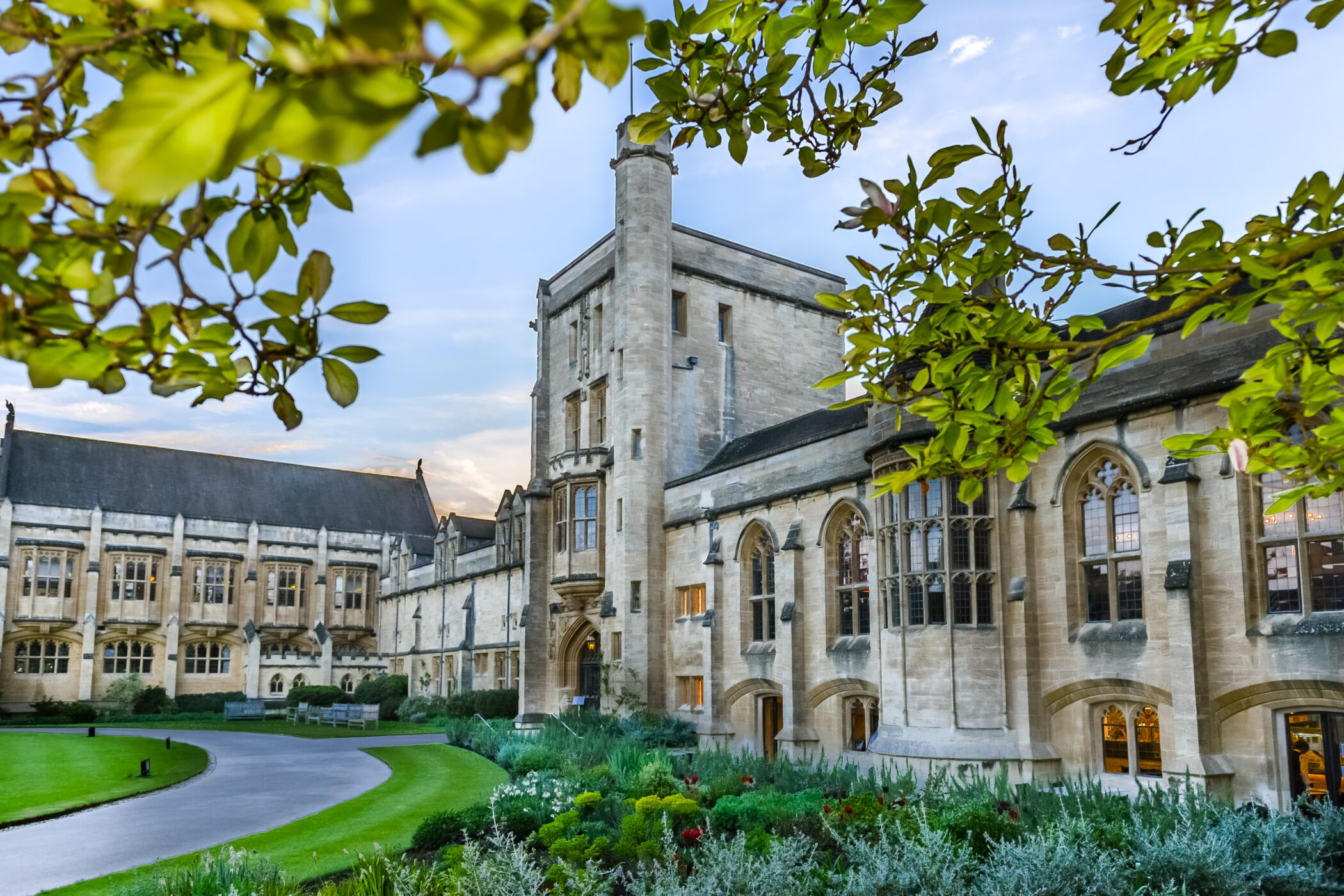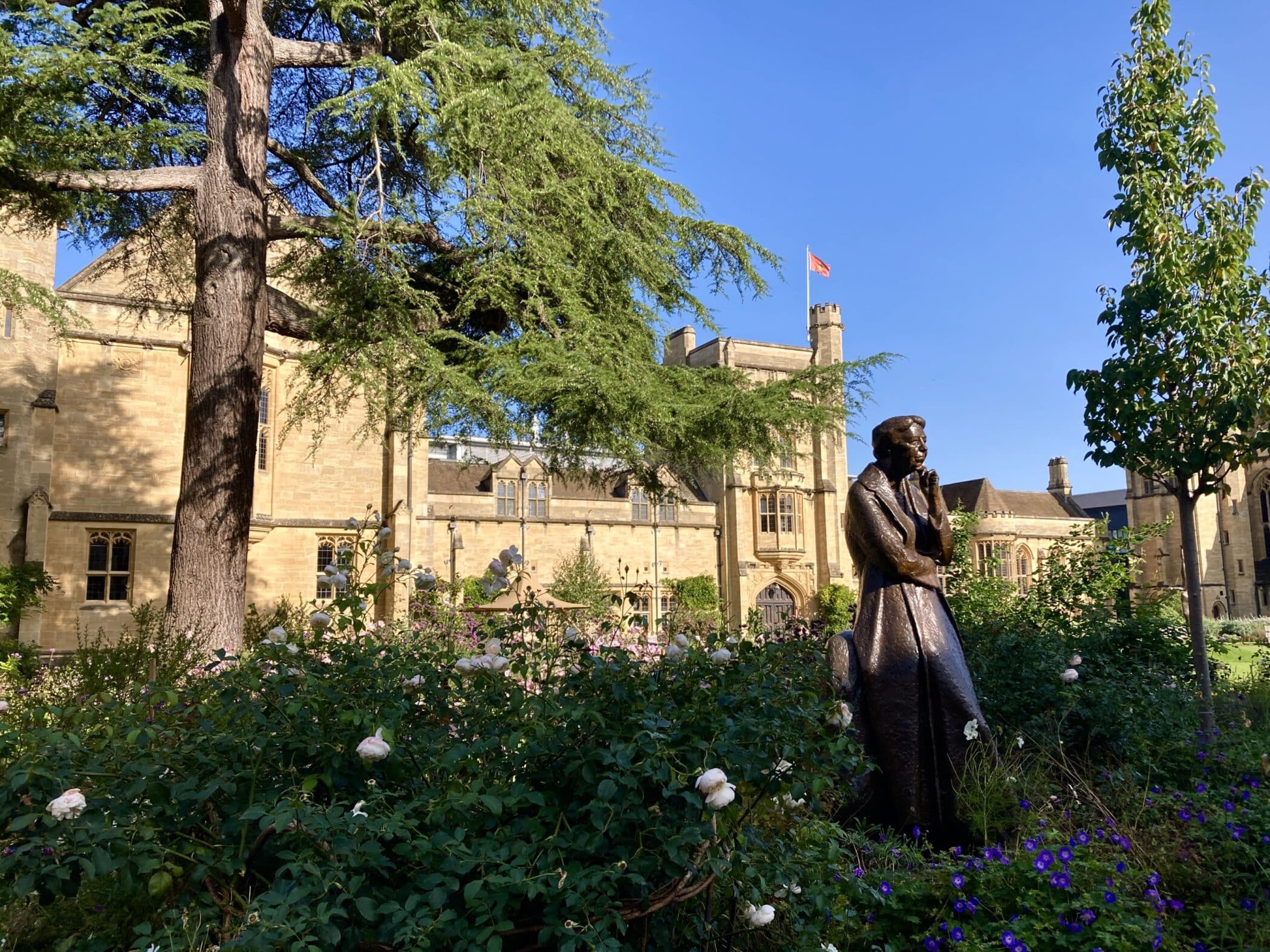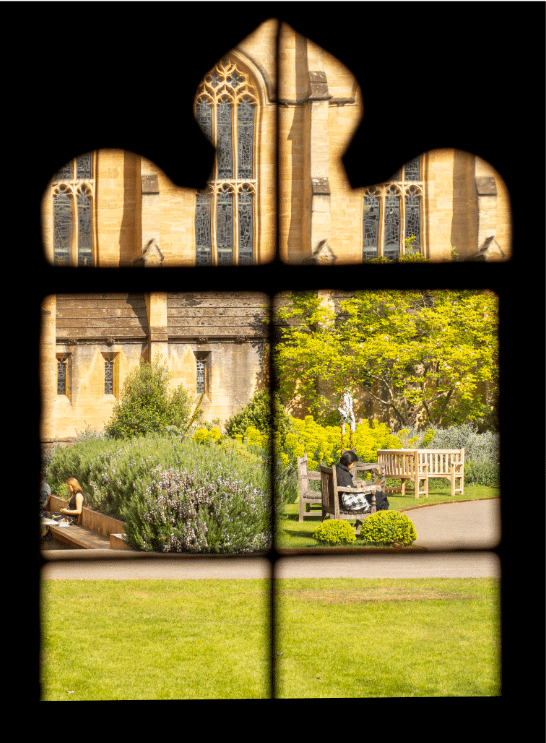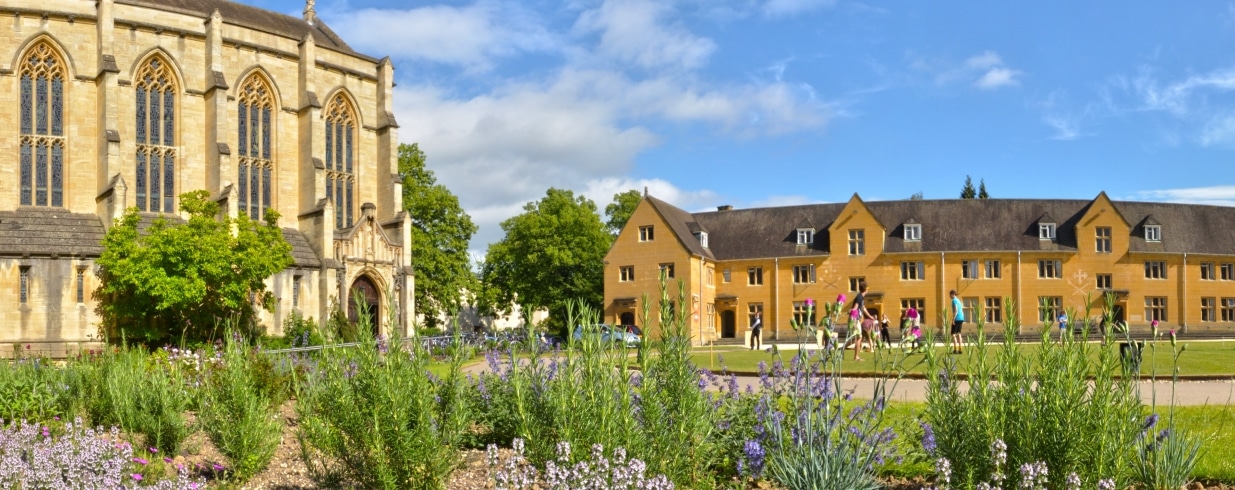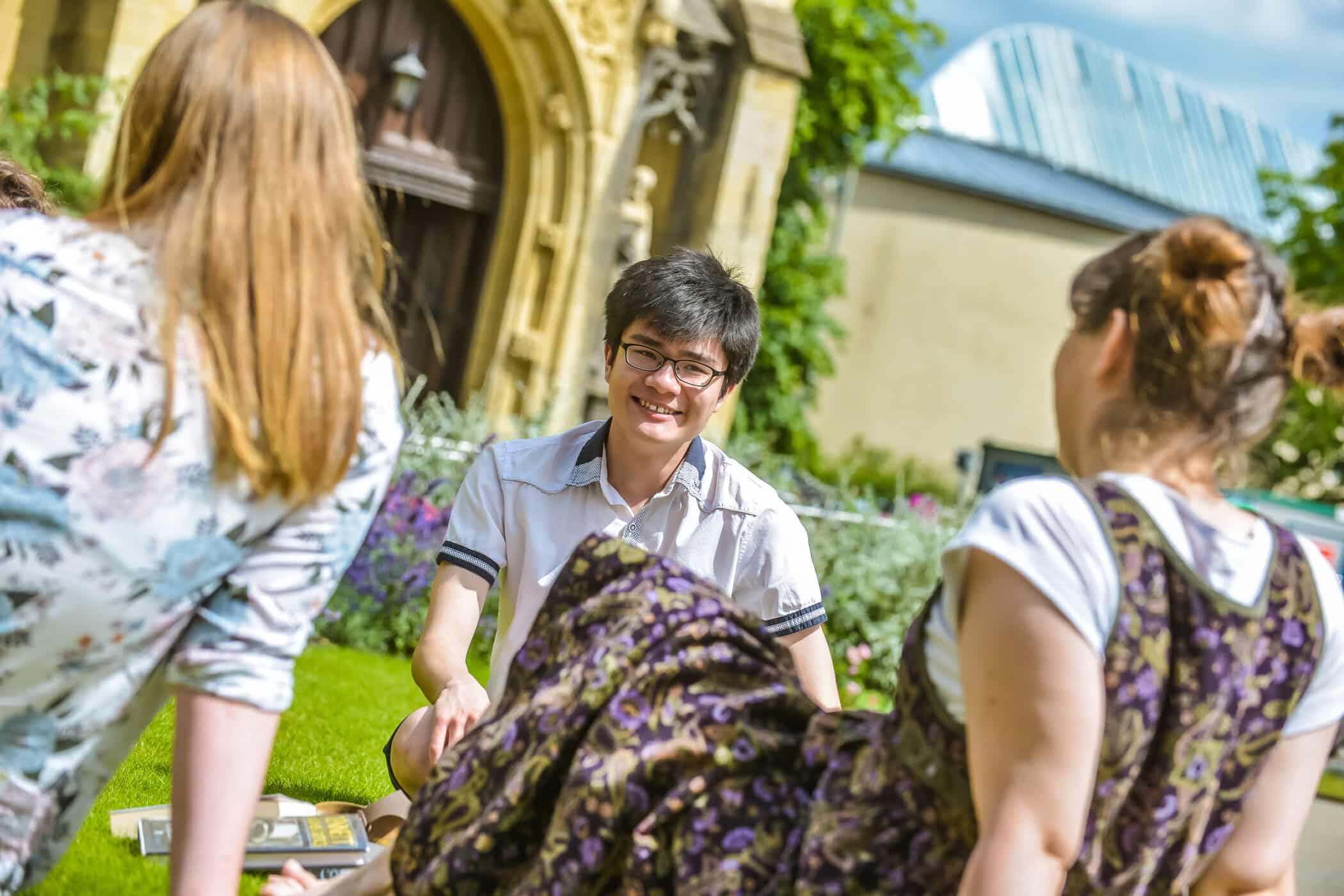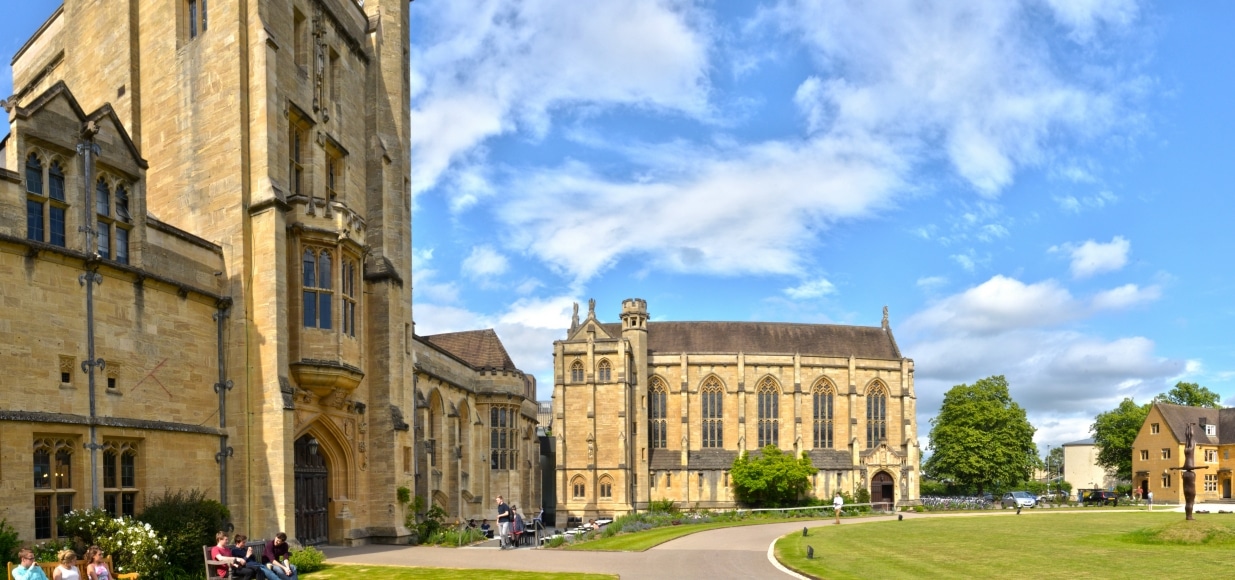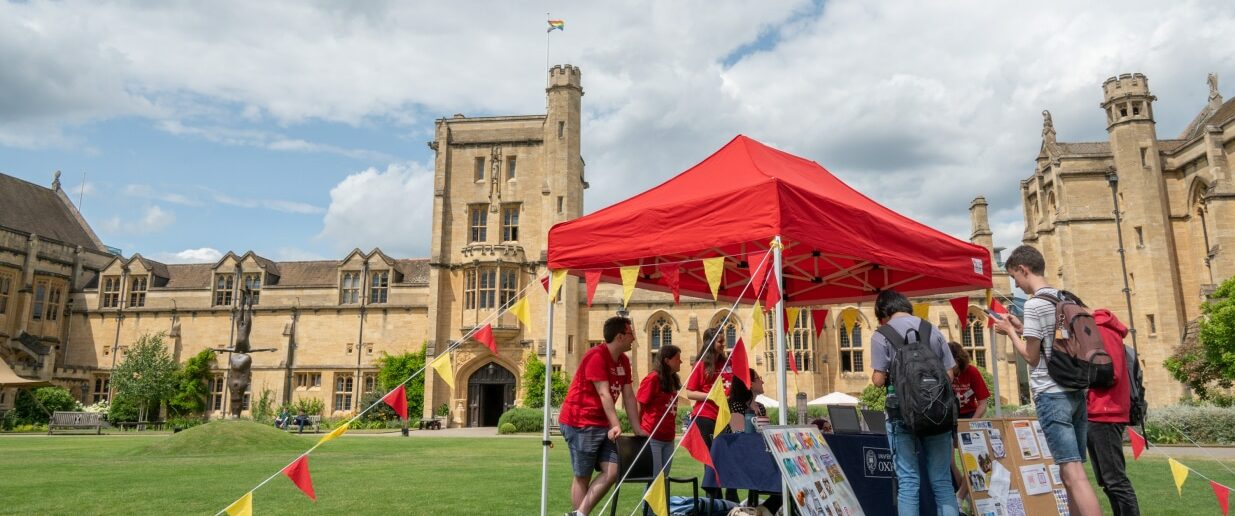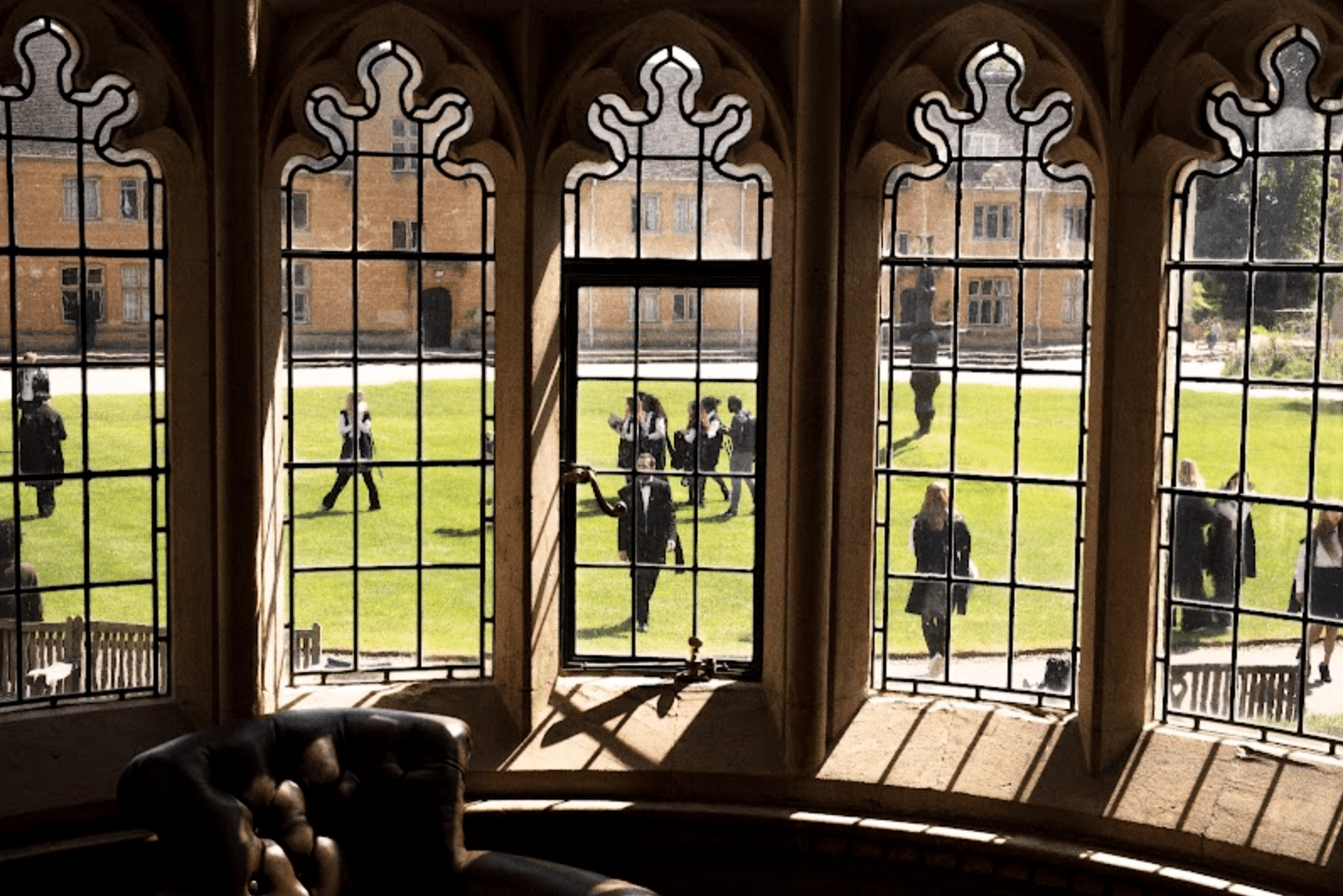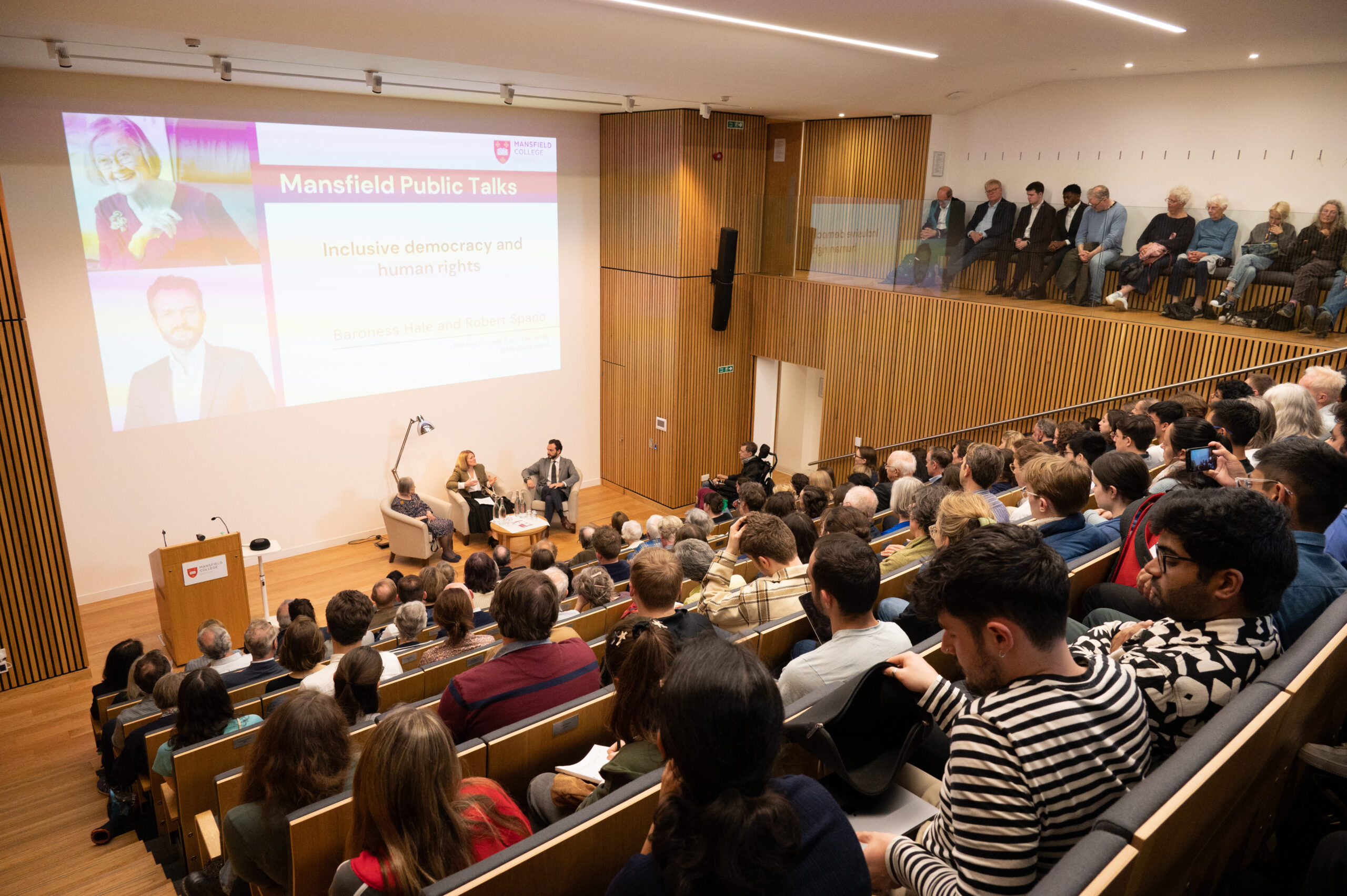Throughout Mansfield’s history we have nurtured our founding principles – freedom of conscience, access to education, and respect for difference and dissent. While we’re no longer a religious institution, those founding principles remain central to our vision for an inclusive future.
Our timeline
- In 1838 Mansfield was founded as a theology college, Spring Hill College, in Birmingham
- In 1886 we moved to our current home in Oxford
- In 1887 we offered the first non-theology subject: Geography at Mansfield
- From 1913 we accepted women for ordination
- In 1955 we joined Oxford University as a Permanent Private Hall
- From 1979 we welcomed mixed cohorts
- In 1995 we became a full University of Oxford College
- In 2000 we launched a major initiative to welcome state school applicants
- In 2017 we established the Bonavero Institute of Human Rights
- By 2020 our offers to state-school students rose from 67% to over 90%
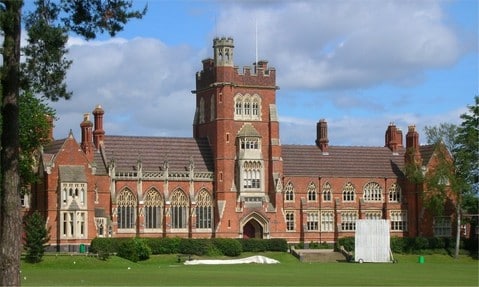
Back to our non-conformist beginnings
In Spring Hill, we provided further education and theological training for nonconformist ministers. We were primarily associated with the Congregationalist denomination – AKA the Independents. With supporters including Oliver Cromwell, they called for the separation of church and state, favouring the self-government of local churches over the hierarchical structures of the Anglican church.
By the nineteenth century, most Congregationalists in England and Wales joined with the Presbyterian Church of England to become part of the United Reformed Church (founded in 1972).
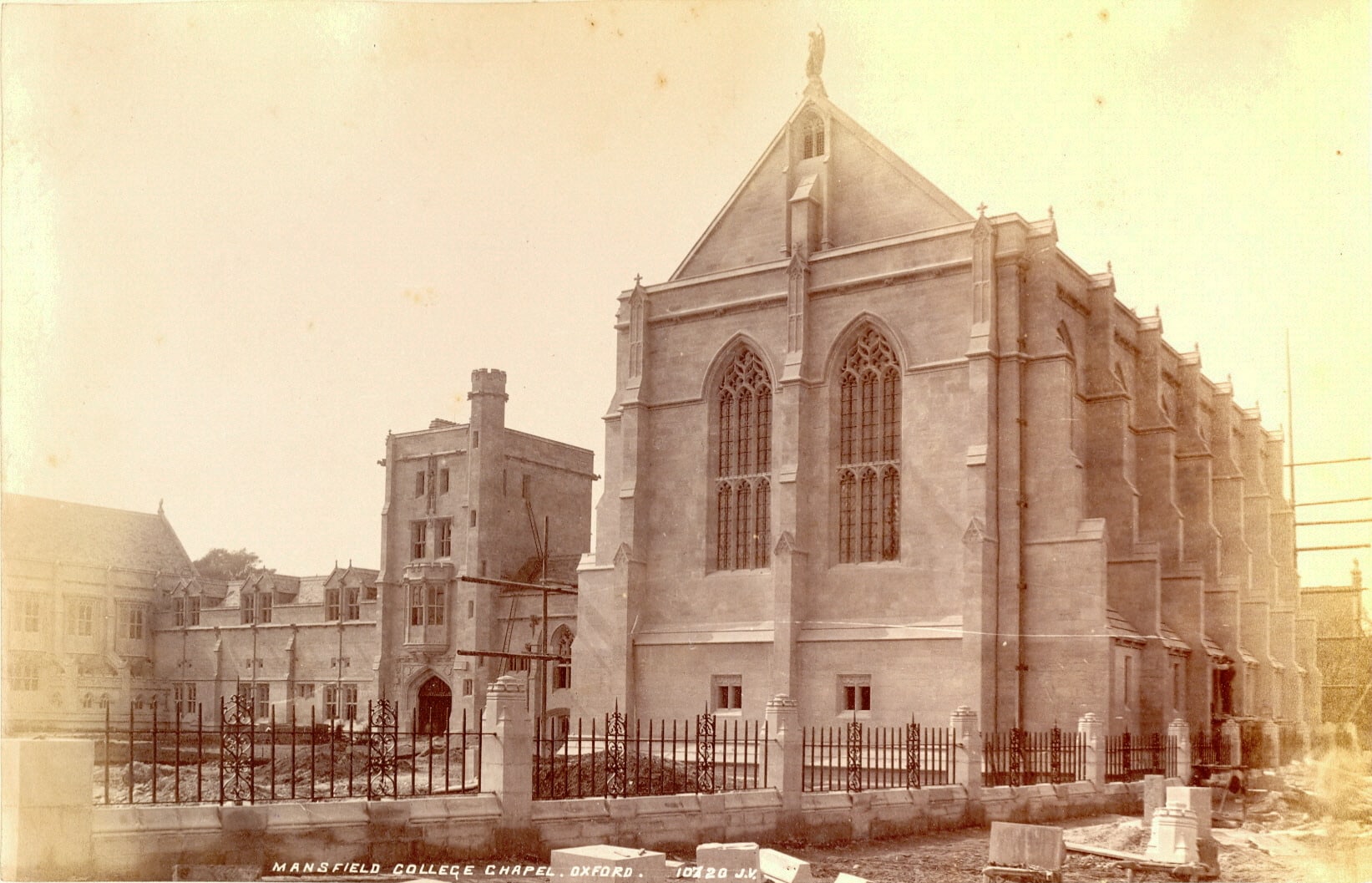
Joining the University of Oxford
This was part of a broader move to recognise the rights of dissenters to study at the University of Oxford. While catering largely for Congregationalist students, Mansfield College welcomed other denominations too – providing a focal point for dissenters who had long been excluded from the religious life of the University.
We formally joined the University as a Permanent Private Hall in 1955 – although before this, our students could matriculate through other colleges. Since then, students have studied for a wide range of degrees at Mansfield.

Celebrating diverse perspectives
Reaching out to Further Education colleges and underrepresented areas in the UK, we’ve helped to increase the University’s average of offers to state-sector students from 54% to 67% – and over 90% at Mansfield.
A £23m fundraising campaign helped us establish the Bonavero Institute of Human Rights, fostering scholarship in human rights law and promoting public understanding of human rights issues. We also added food and drink spaces, a 160-seat lecture theatre, and 74 ensuite rooms.
Our numbers have risen too – up to a usually mid-table Norrington ranking and around 76 undergraduate students a year. We’re now a community of over 700 people who represent 60 countries.
Mansfield: Portrait of an Oxford College
